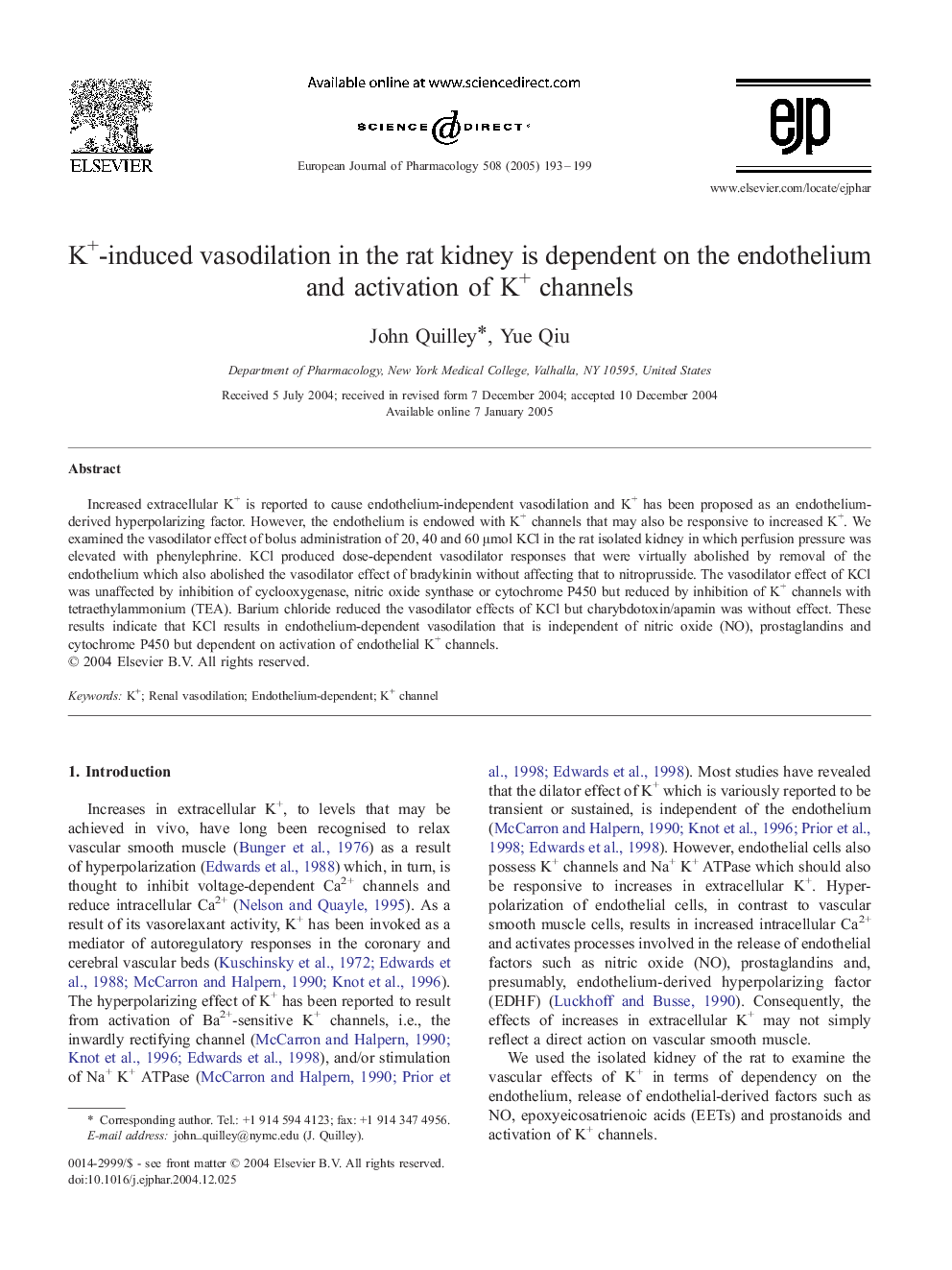| Article ID | Journal | Published Year | Pages | File Type |
|---|---|---|---|---|
| 9921537 | European Journal of Pharmacology | 2005 | 7 Pages |
Abstract
Increased extracellular K+ is reported to cause endothelium-independent vasodilation and K+ has been proposed as an endothelium-derived hyperpolarizing factor. However, the endothelium is endowed with K+ channels that may also be responsive to increased K+. We examined the vasodilator effect of bolus administration of 20, 40 and 60 μmol KCl in the rat isolated kidney in which perfusion pressure was elevated with phenylephrine. KCl produced dose-dependent vasodilator responses that were virtually abolished by removal of the endothelium which also abolished the vasodilator effect of bradykinin without affecting that to nitroprusside. The vasodilator effect of KCl was unaffected by inhibition of cyclooxygenase, nitric oxide synthase or cytochrome P450 but reduced by inhibition of K+ channels with tetraethylammonium (TEA). Barium chloride reduced the vasodilator effects of KCl but charybdotoxin/apamin was without effect. These results indicate that KCl results in endothelium-dependent vasodilation that is independent of nitric oxide (NO), prostaglandins and cytochrome P450 but dependent on activation of endothelial K+ channels.
Related Topics
Life Sciences
Neuroscience
Cellular and Molecular Neuroscience
Authors
John Quilley, Yue Qiu,
